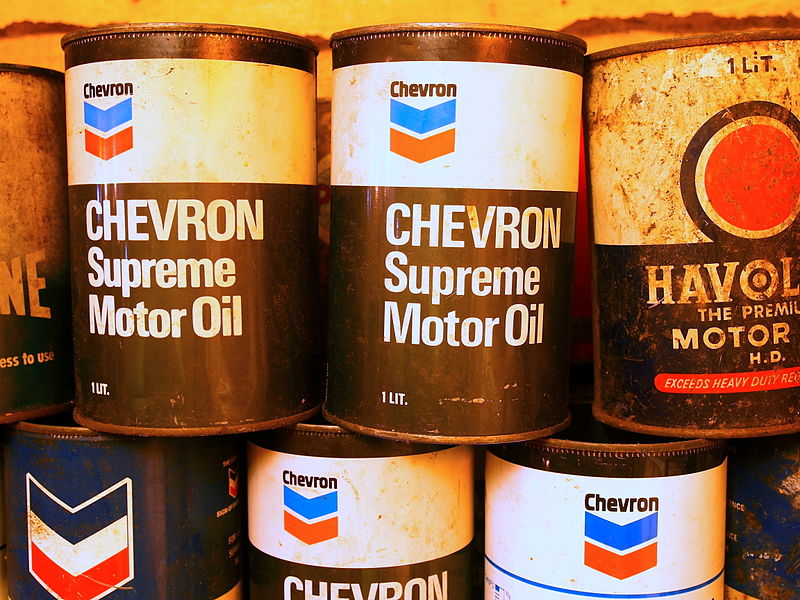The company decided to temporarily stop drilling in the region. This decision was made in connection with the fighting in neighboring Kirkuk, and also because of the difficulties that the company is experiencing when updating the team of workers due to the ban on flights to Iraqi Kurdistan, imposed by Iran, Turkey and the central Iraqi government in Baghdad.
"We continue to monitor the situation in Iraqi Kurdistan," said Chevron's spokeswoman, quoting the publication, "We look forward to the resumption of our operations as soon as the conditions permit."
The central government forces of Iraq on Monday launched an offensive into the territory controlled by the Kurds in the oil province of Kirkuk. This was Baghdad's response to the Kurdish independence referendum held last month.
Iraq is the second largest oil producer in OPEC, providing about 14% of the total volume of the cartel's production. The conflict, concentrated in the north of the country, can have a direct impact on the oil markets.
Kirkuk's oil fields and oil reserves in the Kurdish region provided exports of about 600,000 barrels per day (b/d) over a Kurdish-controlled pipeline to Turkey, Bloomberg reported, citing an informed source.
The Eurasia Group estimates that taking Kirkuk under Iraqi control could cut supplies by 450,000 b/d until the federal government repairs its own unused pipeline to Turkey or reaches an agreement on sharing profits with the Kurds.
Since the time of the attack on Kirkuk, Iraq has been trying to regain control of neighboring Kurdistan, threatening foreign oil companies with legal consequences if they conduct business with the government of the region.
Baghdad called on BP to help the country double its production in Kirkuk to 1 million barrels a day.
In turn, BP stated that it will not do so until the security in the region is restored, but Kirkuk would be a godsend for a company that already operates the largest oil field in Iraq. BP worked in Kirkuk, but was forced to leave this region in 2014 because of the onset of the Islamic state.
Unlike Chevron and Exxon, BP preferred keep away Iraqi Kurdistan for nearly a decade of oil-related disputes with Baghdad.
"We will not rule anything out in the future," BP CEO Bob Dudley told reporters this week, "Let's just see what happens in Kirkuk if stability returns."
source: wsj.com
"We continue to monitor the situation in Iraqi Kurdistan," said Chevron's spokeswoman, quoting the publication, "We look forward to the resumption of our operations as soon as the conditions permit."
The central government forces of Iraq on Monday launched an offensive into the territory controlled by the Kurds in the oil province of Kirkuk. This was Baghdad's response to the Kurdish independence referendum held last month.
Iraq is the second largest oil producer in OPEC, providing about 14% of the total volume of the cartel's production. The conflict, concentrated in the north of the country, can have a direct impact on the oil markets.
Kirkuk's oil fields and oil reserves in the Kurdish region provided exports of about 600,000 barrels per day (b/d) over a Kurdish-controlled pipeline to Turkey, Bloomberg reported, citing an informed source.
The Eurasia Group estimates that taking Kirkuk under Iraqi control could cut supplies by 450,000 b/d until the federal government repairs its own unused pipeline to Turkey or reaches an agreement on sharing profits with the Kurds.
Since the time of the attack on Kirkuk, Iraq has been trying to regain control of neighboring Kurdistan, threatening foreign oil companies with legal consequences if they conduct business with the government of the region.
Baghdad called on BP to help the country double its production in Kirkuk to 1 million barrels a day.
In turn, BP stated that it will not do so until the security in the region is restored, but Kirkuk would be a godsend for a company that already operates the largest oil field in Iraq. BP worked in Kirkuk, but was forced to leave this region in 2014 because of the onset of the Islamic state.
Unlike Chevron and Exxon, BP preferred keep away Iraqi Kurdistan for nearly a decade of oil-related disputes with Baghdad.
"We will not rule anything out in the future," BP CEO Bob Dudley told reporters this week, "Let's just see what happens in Kirkuk if stability returns."
source: wsj.com





